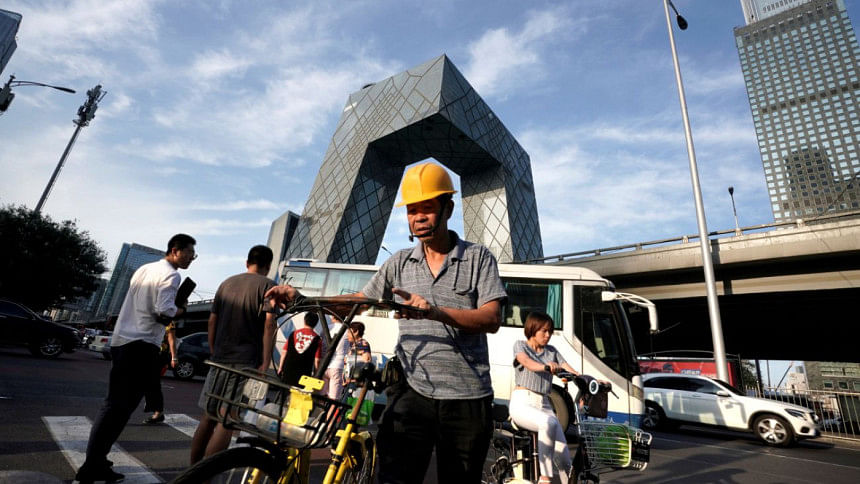China warns investment may weaken further

China's investment growth, already at record lows, may weaken even further in the future and authorities should step up fiscal and financial measures to give it a boost, the state planner said on Monday.
Beijing is urging more infrastructure spending as the economy faces both domestic and external risks, such as US tariffs. But the benefits will take time to kick in, with analysts expecting the economy to get worse before it gets better.
Fixed-asset investment (FAI) in the first seven months of the year grew at the slowest pace on record since early 1996, after a long crackdown on illegal local government borrowing to finance vanity projects.
Moreover, initial investment approvals - an indicator of future activity - have dropped off sharply, the National Development and Reform Commission (NDRC) said in a statement.
The total value of such projects for which the NDRC has assigned a project code - an initial step in the approval process - rose just 3.1 percent in January-July compared with 6.9 percent in the first half of the year.
“The decline reflects the many barriers that our country's infrastructure construction faces, and the stiff competition in low-end manufacturing while middle- and high-end sectors have relatively high bar for entry,” NDRC said in a monthly monitoring report published on its website.
Among these newly registered projects, the investment value of infrastructure projects fell 35.2 percent in January-July from a year earlier, with the most significant drop in sectors such as pipelines, railways and air and road transport. Growth in registered manufacturing investments slowed to 12.4 percent.
The slowdown is partly due to Beijing's stringent debt curbs and efforts to reduce financial risks, the NDRC said.
Beijing might tolerate some moderate increases in leverage at state-owned enterprises (SOEs) due to its success in the last few years on supply-side reform, including deleveraging and eliminating excess capacity, but it remains intent on keeping public-sector leverage under control, Fitch Ratings said on Monday.
New manufacturing investment projects in sectors ranging from tobacco and fur to petroleum and nuclear fuel processing all fell more than 30 percent.
In recent weeks, Beijing has told local governments to speed up the sale of special bonds to raise money for investments. Finance Minister Liu Kun told Reuters such bond issuance will blow past 1 trillion yuan ($145.48 billion) by the end of the current quarter.
Official data on Monday suggested manufacturing investment may weaken further. Profit growth for China's industrial firms, while still solid, cooled for the third month in a row in July as domestic demand softens and US trade pressures mount.
Real estate has been the lone bright spot so far on China's investment front, partly due to robust land transactions in smaller cities, with spending proving resilient to government efforts to tame hot property prices.
New real estate investment projects that obtained a project code rose a robust 38.1 percent by value in the first seven months from a year earlier, the NDRC said.
Regions that saw the slowest progress in new investment projects in January-July included Chongqing, the Xinjiang autonomous region, and Fujian province.
Local government financing vehicles (LGFVs) involved in railways and toll roads are likely to embark on new projects but will be constrained by their leverage, Fitch said in its statement.
Moreover, the senior management of LGFVs will be held personally accountable for their investment and financing decisions, which could lead to conservative project selection, Fitch said.

 For all latest news, follow The Daily Star's Google News channel.
For all latest news, follow The Daily Star's Google News channel. 



Comments